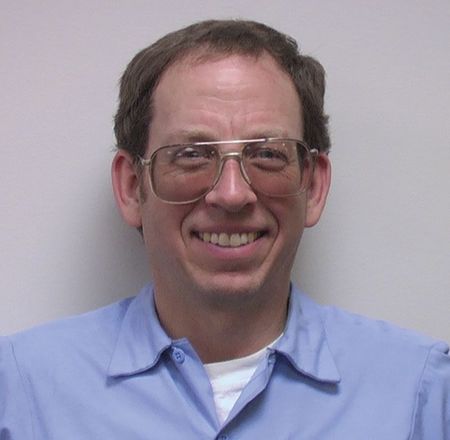By Roberta Rampton and Lesley Wroughton
WASHINGTON (Reuters) - North Korea has freed Jeffrey Fowle, one of three Americans detained by the country, and he is being flown home to his family, Washington said on Tuesday, amid growing international pressure on Pyongyang over its human rights record.
North Korea has been on a diplomatic campaign to counter charges by a U.N. body that highlighted widespread human rights abuses and a move by some U.N. members to refer the state to an international tribunal.
White House spokesman Josh Earnest said the United States welcomed the release of Fowle, a street repair worker from Miamisburg, Ohio, but pressed Pyongyang to free the two remaining Americans.
"While this is a positive decision ... we remain focused on the continued detention of Kenneth Bae and Matthew Miller and again call on the DPRK to immediately release them," Earnest said, referring to the country's official name, the Democratic People's Republic of Korea.
Fowle, 56, was arrested in May for leaving a Bible at a sailor's club in the North Korean city of Chongjin, where he was traveling as a tourist. The isolated state is particularly sensitive to religious proselytizing.
Miller was arrested in April for a separate incident. The longest to be held by North Korea is Bae, a Korean-American missionary arrested in November 2012 and sentenced to 15 years' hard labor.
NORTH'S MOTIVE UNCLEAR
It was not immediately clear why reclusive North Korea decided to free Fowle.
U.S. officials declined to give details on the negotiations that led to his release, or to speculate why Pyongyang freed him in case it jeopardized talks over Bae and Miller. The release was facilitated by Swedish diplomats, said State Department spokeswoman Marie Harf.
Sweden has an embassy in Pyongyang and acts as a "protecting power" for Washington.
The United States has long insisted that the release of American prisoners should be unconditional and not linked to talks on North Korea's nuclear program.
Stephan Haggard, a North Korea expert at the University of California in San Diego, said the move to free Fowle was likely part of an effort by Pyongyang to show it was "reasonable".
"North Korea is currently engaged in a very complex charm offensive on many fronts," said Haggard, citing Pyongyang's discussions with Japan on the fate of Japanese citizens abducted decades ago, as well as planned talks with South Korea despite a recent series of border altercations.
Japan would send officials to North Korea to hold meetings on Oct. 28-29 for an update on Pyongyang's investigation into the abducted citizens, Japan's top government spokesman said on Wednesday.
Tokyo eased some sanctions on North Korea in July in return for the North reopening its probe into the status of the victims, who were kidnapped to train spies.
North Korea made it a condition of Fowle's release that the U.S. government transport him out of the country and set a time for him to be picked up, U.S. officials said.
"In this timeframe the Department of Defense was able to offer a plane," said Harf.
Passengers on another flight at Pyongyang airport reported seeing a blue and white U.S. military passenger jet, a stars-and-stripes emblem on its tail, parked on the tarmac on Tuesday afternoon, a source in Pyongyang told Reuters.
HEADING HOME
After departing Pyongyang, the U.S. plane carrying Fowle flew to the Pacific island of Guam, site of a major U.S. Navy base, before leaving for the United States, Harf said.
Bae's sister, Terri Chung, said in a statement that her family celebrated Fowle's release but was in pain knowing her brother remained at a labor camp with an uncertain future.
"While we wrestle with the disappointment that Kenneth was not brought home as well, we believe, however optimistically, that this release could be a sign of hope for Kenneth," she said.
Fowle's release came as some United Nations members prepare a resolution to refer North Korea to an international tribunal for crimes against humanity, which prompted Pyongyang to propose its own text praising its human rights record.
"We regard the resolution against the DPRK as politically motivated and has nothing to do with the genuine protection and promotion of human rights," North Korea's envoy to the United Nations, Jang Il Hun, told a Council on Foreign Relations forum earlier this week in New York.
John Delury, a Seoul-based expert on North Korea, said the release would give diplomats on both sides more room to move, especially if Fowle was the first.

"If it's a one off – if it's just Fowle – then it's not a game changer, there are still two citizens there. Kenneth Bae is really the top nut to crack, he's the hard one," said Delury.
(Additional reporting by Jeff Mason in Washington, Eric M. Johnson in Seattle, James Pearson in Seoul and Kaori Kaneko in Tokyo; Editing by David Storey, Andre Grenon, Peter Cooney, Bernard Orr and Dean Yates)
